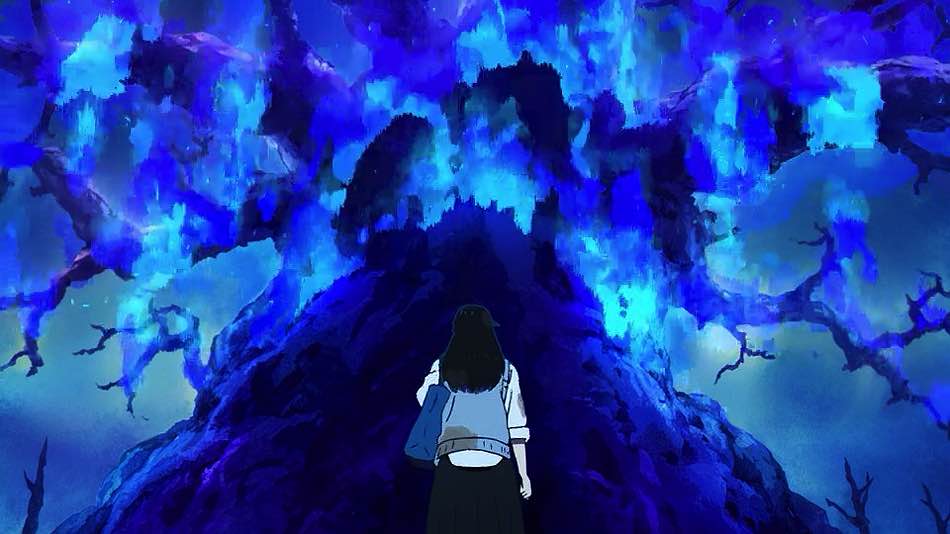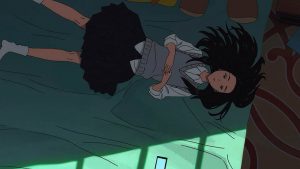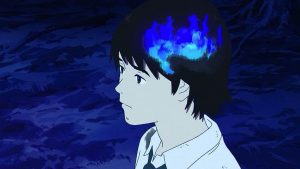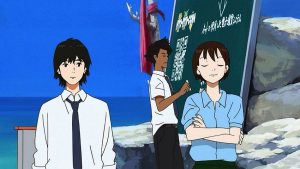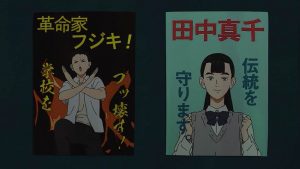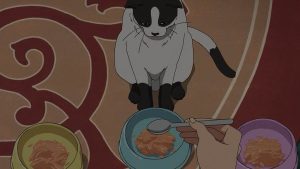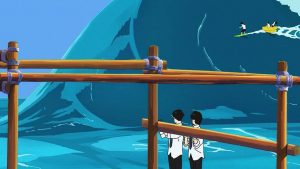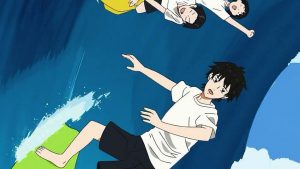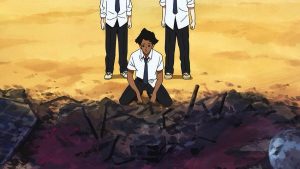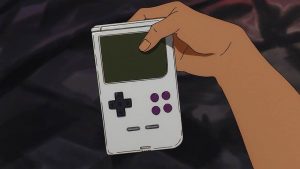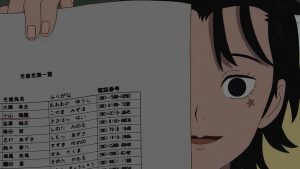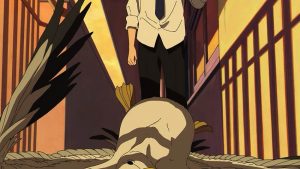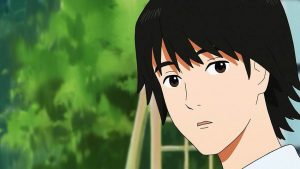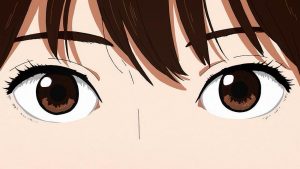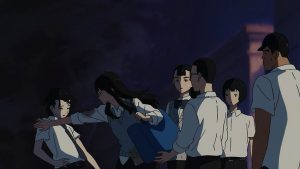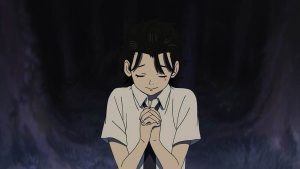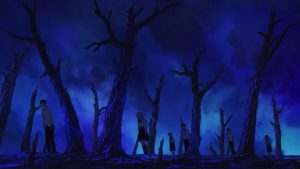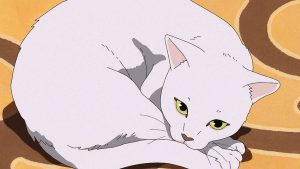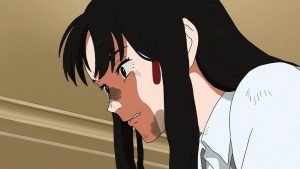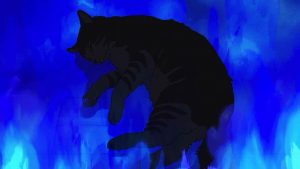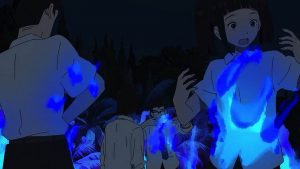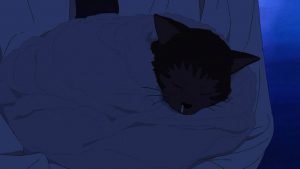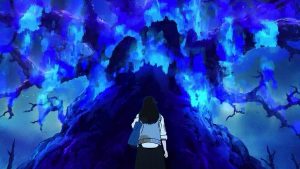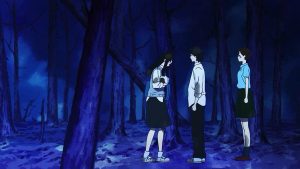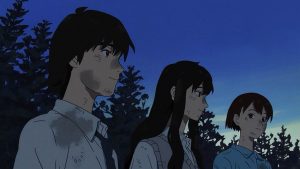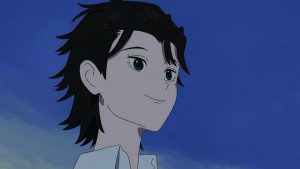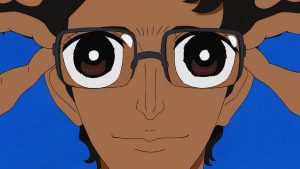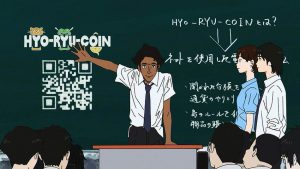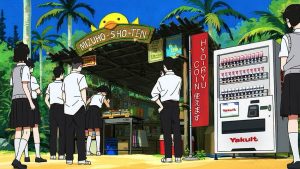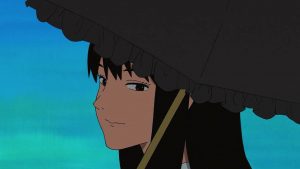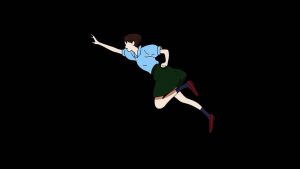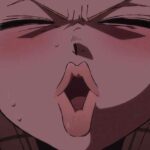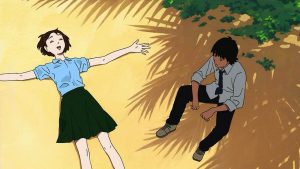 Apparently, in the echo chamber of stupid that is certain corners of anime discussion on the net (I probably don’t need to elaborate) some people have convinced themselves that Sonny Boy is an anti-vax propaganda piece. Even setting aside the fact that given how anime is made this show was probably developed at least 3 years ago (well before the pandemic), I can’t overstate how bizarre this analysis seems to me. It really makes me think that any kind of social or political commentary in anime (as Natsume Shingo is known to engage in) is a waste of time for much of the audience.
Apparently, in the echo chamber of stupid that is certain corners of anime discussion on the net (I probably don’t need to elaborate) some people have convinced themselves that Sonny Boy is an anti-vax propaganda piece. Even setting aside the fact that given how anime is made this show was probably developed at least 3 years ago (well before the pandemic), I can’t overstate how bizarre this analysis seems to me. It really makes me think that any kind of social or political commentary in anime (as Natsume Shingo is known to engage in) is a waste of time for much of the audience.
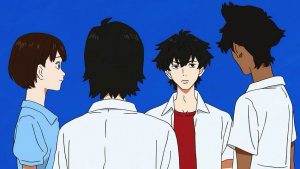 Another clue that Sonny Boy may be a huge mismatch with its era is the amount of bitching about nothing being explained. Yes, this is not a new problem in anime and yes, a lot of it stems from the ascension of LN adaptions – attention spans are dramatically shorter than they were when shows like this were the norm, yada yada. It’s not new information but no less relevant or true for that – this is a real problem for series like this in the 2020’s. Natsume even commented that in watching early edits of the premiere, he was aghast at how much he left unexplained – suggesting that he was well aware of the leap he was making.
Another clue that Sonny Boy may be a huge mismatch with its era is the amount of bitching about nothing being explained. Yes, this is not a new problem in anime and yes, a lot of it stems from the ascension of LN adaptions – attention spans are dramatically shorter than they were when shows like this were the norm, yada yada. It’s not new information but no less relevant or true for that – this is a real problem for series like this in the 2020’s. Natsume even commented that in watching early edits of the premiere, he was aghast at how much he left unexplained – suggesting that he was well aware of the leap he was making.
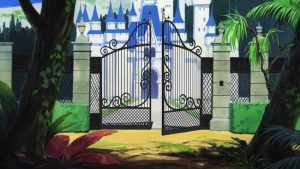 I have no idea whether audiences (enough of them anyway) will eventually embrace Sonny Boy. Anyway, the most important question in the end is whether I’ll embrace it, as it is with any other series I watch. So far I’m a bit mixed if I’m honest, but I have no problem with the mystery as I cut my teeth on series like this. And I certainly don’t see any reactionary political agenda at work here, though that’s not to say Natsume isn’t taking a deep dive on the nature of civilization (a la Lord of the Flies) and authoritarianism vs. anarchy. One school of thought says that the two competing poles in the modern political world are freedom vs. equality, and that seems to me something like what Natsume-sensei wants to explore here.
I have no idea whether audiences (enough of them anyway) will eventually embrace Sonny Boy. Anyway, the most important question in the end is whether I’ll embrace it, as it is with any other series I watch. So far I’m a bit mixed if I’m honest, but I have no problem with the mystery as I cut my teeth on series like this. And I certainly don’t see any reactionary political agenda at work here, though that’s not to say Natsume isn’t taking a deep dive on the nature of civilization (a la Lord of the Flies) and authoritarianism vs. anarchy. One school of thought says that the two competing poles in the modern political world are freedom vs. equality, and that seems to me something like what Natsume-sensei wants to explore here.
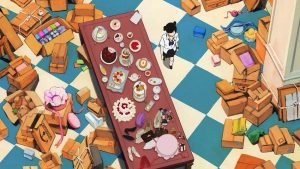 If you’d pressed me after the first episode (which it’s now been almost a month since I watched), I would have said these children were dead, for reasons I explained in that post. Now I’m less convinced, as things look considerably more complicated. One notable element is that the rules inside the school are different than from the island where it’s washed up – like broken things (including living ones) being mended inside the school but not on the island. And there are apparently other worlds – “these worlds” as resident science whiz Rajdhani (Gotou Hiroki) calls them – connected to the island, presumably each with their own set of rules.
If you’d pressed me after the first episode (which it’s now been almost a month since I watched), I would have said these children were dead, for reasons I explained in that post. Now I’m less convinced, as things look considerably more complicated. One notable element is that the rules inside the school are different than from the island where it’s washed up – like broken things (including living ones) being mended inside the school but not on the island. And there are apparently other worlds – “these worlds” as resident science whiz Rajdhani (Gotou Hiroki) calls them – connected to the island, presumably each with their own set of rules.
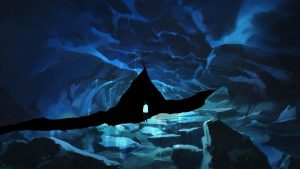 Another key figure from the premiere is Hoshi (Naitou Ami), who seems to represent the authoritarian side of the spectrum. He’s the power broker, the instigator – the question is, is he just an asshole or is he different from all the others in some fundamental way? Hoshi has something of the cat amongst the pigeons to him, as if he’s a scientist who’s leapt inside the experiment with his test subjects to push the buttons from the inside rather than the outside. I’m calling that a workable theory at this point, but there’s not enough evidence to make it more than that.
Another key figure from the premiere is Hoshi (Naitou Ami), who seems to represent the authoritarian side of the spectrum. He’s the power broker, the instigator – the question is, is he just an asshole or is he different from all the others in some fundamental way? Hoshi has something of the cat amongst the pigeons to him, as if he’s a scientist who’s leapt inside the experiment with his test subjects to push the buttons from the inside rather than the outside. I’m calling that a workable theory at this point, but there’s not enough evidence to make it more than that.
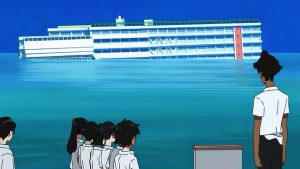 Much of the drama of this episode surrounds Mizuho (as is often the case, Aoi Yuuki’s performance is the standout so far). She has the ability to call stuff into existence, which of course the students (and she) avail themselves of liberally. But when items start bursting into mysterious blue flame, Nagara inadvertently casts a pall of suspicion on her – a wave Hoshi is only too happy to ride. Mizuho isn’t responsible of course, but she’s also stubborn and sullen. She hides herself away with her swag and her cats and refuses to make things easier on the principle of it, much to Nagara’s chagrin. It turns out that on the island anything that isn’t paid or traded for self-destructs in flames – a problem which Rajdhani devises an ingenious solution for.
Much of the drama of this episode surrounds Mizuho (as is often the case, Aoi Yuuki’s performance is the standout so far). She has the ability to call stuff into existence, which of course the students (and she) avail themselves of liberally. But when items start bursting into mysterious blue flame, Nagara inadvertently casts a pall of suspicion on her – a wave Hoshi is only too happy to ride. Mizuho isn’t responsible of course, but she’s also stubborn and sullen. She hides herself away with her swag and her cats and refuses to make things easier on the principle of it, much to Nagara’s chagrin. It turns out that on the island anything that isn’t paid or traded for self-destructs in flames – a problem which Rajdhani devises an ingenious solution for.
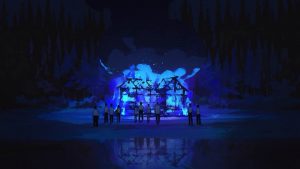 If you’d told me Sonny Boy was a Kon Satoshi series someone found in a time capsule, I wouldn’t be skeptical. It has that arch, somewhat cold emotional abstraction and intellectualism some of his work had. Kon could also be quite affecting on an emotional level though, and I’m not there with this series yet. The characters are fine – Mizuho and Hoshi are the most interesting, and Nagara is a likeable if so far somewhat bland central figure (Nozomi with her “Compass” ability is obviously going to be crucial as well). I care about the story in the sense of wanting to know what’s happening (and why), but that’s the extent to which I do – for now. I see lots of upside potential here and I’m reasonably hopeful Sonny Boy will fulfill it, but that’s still a matter of faith at this point.
If you’d told me Sonny Boy was a Kon Satoshi series someone found in a time capsule, I wouldn’t be skeptical. It has that arch, somewhat cold emotional abstraction and intellectualism some of his work had. Kon could also be quite affecting on an emotional level though, and I’m not there with this series yet. The characters are fine – Mizuho and Hoshi are the most interesting, and Nagara is a likeable if so far somewhat bland central figure (Nozomi with her “Compass” ability is obviously going to be crucial as well). I care about the story in the sense of wanting to know what’s happening (and why), but that’s the extent to which I do – for now. I see lots of upside potential here and I’m reasonably hopeful Sonny Boy will fulfill it, but that’s still a matter of faith at this point.


